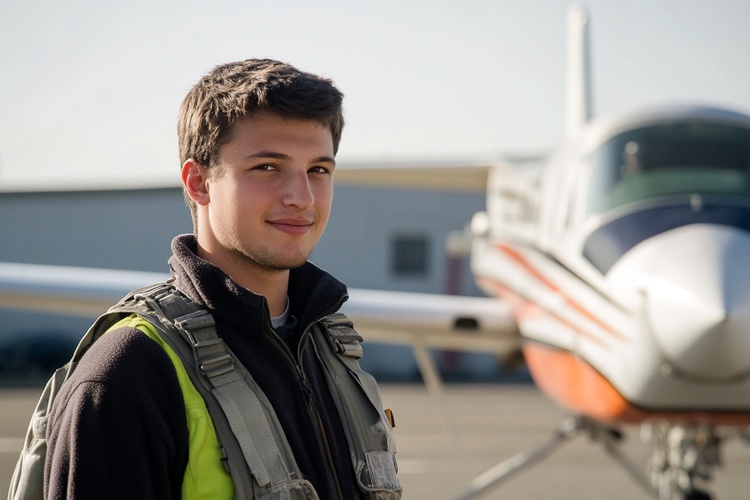Leading the Way: Exploring Top Benefits of Aviation Trainings in Canada
Exploring the path towards a rewarding career in aviation can be an exhilarating experience. Canada, with its vast landscapes and well-developed aviation industry, stands as a beacon for aspiring pilots and aviation professionals. Understanding the key benefits of aviation trainings in Canada reveals why this country is a top choice for anyone looking to embark on a journey in aviation.

What makes Canada’s aviation education stand out globally?
Canada’s aviation education system is renowned for its exceptional quality and comprehensive approach. The country boasts some of the world’s most advanced flight training facilities, equipped with state-of-the-art simulators and aircraft. Canadian aviation schools adhere to rigorous international standards, ensuring that graduates are well-prepared for the global aviation market. The curriculum combines theoretical knowledge with extensive practical training, providing students with a solid foundation in all aspects of aviation, from flight operations to aviation management.
How does Canada’s aviation industry offer diverse career opportunities?
The Canadian aviation sector is a vibrant ecosystem that extends far beyond piloting. It encompasses a wide range of career paths, including air traffic control, aircraft maintenance, aviation management, and aerospace engineering. This diversity allows students to explore various facets of the industry and find their niche. Moreover, Canada’s strategic location and extensive network of international partnerships open doors to global opportunities, making it an ideal launchpad for an international aviation career.
What advantages does a multicultural learning environment provide?
Canada’s multicultural society is reflected in its aviation training programs, creating a rich and diverse learning environment. Students from around the world come together, bringing unique perspectives and experiences. This multicultural setting not only enhances the learning experience but also prepares students for the global nature of the aviation industry. It fosters cross-cultural communication skills, adaptability, and a global mindset – all crucial attributes in today’s interconnected aviation world.
How do Canada’s regulatory compliance and safety standards benefit trainees?
Canada’s aviation industry is governed by Transport Canada, known for its stringent safety regulations and high standards. Training programs in Canada are designed to meet and often exceed these rigorous requirements. This focus on safety and regulatory compliance ensures that graduates are well-versed in international aviation laws, safety protocols, and best practices. The emphasis on safety culture during training translates into safer skies and more competent aviation professionals.
What unique aspects of Canadian aviation training set it apart?
Canadian aviation training programs offer unique experiences that set them apart from other countries. Students have the opportunity to train in diverse weather conditions, from arctic climates to coastal environments, preparing them for a wide range of flying scenarios. Canada’s vast and varied terrain also provides exceptional training grounds for navigation and decision-making skills. Additionally, many programs offer specialized courses in areas like bush flying, mountain flying, and float plane operations, equipping students with versatile skill sets highly valued in the industry.
What are the cost considerations for aviation training in Canada?
When considering aviation training in Canada, it’s important to understand the associated costs. While prices can vary significantly depending on the program and institution, here’s a general overview of the costs involved in some popular aviation training programs:
| Program Type | Institution | Estimated Cost (CAD) |
|---|---|---|
| Commercial Pilot License | Seneca College | $70,000 - $80,000 |
| Integrated ATPL Program | Canadian Flight Academy | $85,000 - $95,000 |
| Aircraft Maintenance Engineer | Centennial College | $20,000 - $25,000 per year |
| Aviation Management Degree | University of Waterloo | $40,000 - $50,000 per year |
Prices, rates, or cost estimates mentioned in this article are based on the latest available information but may change over time. Independent research is advised before making financial decisions.
It’s worth noting that while the initial investment in aviation training can be substantial, Canada offers various scholarships, grants, and financial aid options for both domestic and international students. Additionally, the high quality of training and global recognition of Canadian certifications often translate into better job prospects and potential return on investment in the long run.
In conclusion, aviation training in Canada offers a unique blend of high-quality education, diverse opportunities, multicultural experiences, and stringent safety standards. These factors, combined with the country’s natural advantages and global industry connections, make Canada an excellent choice for those aspiring to build a successful career in aviation. Whether you’re dreaming of becoming a pilot, an aerospace engineer, or any other aviation professional, Canada provides the perfect runway for your ambitions to take flight.




